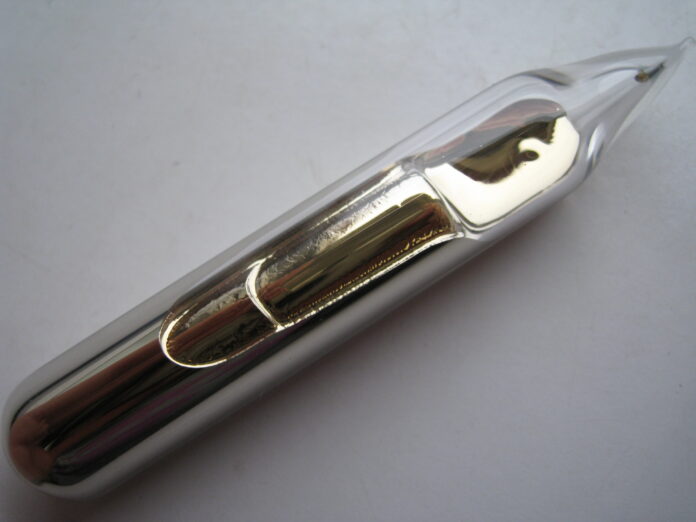According to the hardness scale developed by German scientist Friedrich Mohs in 1811, alkali metals are considered the softest. The top five softest metals include lithium (0.6), sodium (0.5), potassium (0.4), rubidium (0.3), and the softest of all—cesium, with a hardness of just 0.2.
What is Cesium?
Cesium is the softest metal on Earth. It’s so soft that you can cut it with a butter knife. Moreover, cesium melts at a relatively low temperature—28.4°C (83.12°F)—which means it would liquefy in your hand, as the human body temperature is 36.6°C. However, direct contact with cesium is dangerous because it is radioactive and can severely burn the skin, so it must be handled with great care.
While other metals like gold, silver, copper, and aluminum are also considered soft, they are significantly harder than cesium. Cesium, discovered by German chemist Robert Bunsen in 1860, has an atomic number of 55 and is the lightest of the natural alkali metals. The name “cesium” comes from the Latin word for sky-blue, though in its pure form, cesium appears pale gold.
General Characteristics:
- Type: Element (Minerals/Ores).
- Mineral Classification: Alkali metals.
- Chemical Symbol: Cs.
- Crystal Lattice System: Cubic.
- Color: Usually silver-yellow, resembling gold.
- Luster: Oily.
- Fracture: Uneven.
- Isotopes: 31 (ranging from 114 to 145).
- Cesium-137: The most dangerous radioactive isotope.
- Reacts explosively with water.
Where Cesium using?
Cesium and its compounds have various interesting applications. It serves as a catalyst in chemical reactions and is used in photoelectric cells and infrared detectors due to its ability to easily ionize in light. Cesium compounds are also found in specialized alkaline batteries designed for cold climates, and cesium carbonate is used in manufacturing specialty glass.
The world’s most accurate timepiece, the atomic clock, measures time based on the precise vibration of cesium atoms. These clocks are accurate to within 5 seconds every 300 years!
Cesium-137, a radioactive isotope, is used in radiation therapy for certain cancers and sterilizing medical supplies. Additionally, cesium combustion has been found to be an extremely efficient fuel source for space travel, up to 140 times more efficient than traditional fuels.
Only a few thousand kilograms of cesium are used annually. It is primarily extracted from minerals such as mica, beryl, feldspar, petalite, and pollucite.
